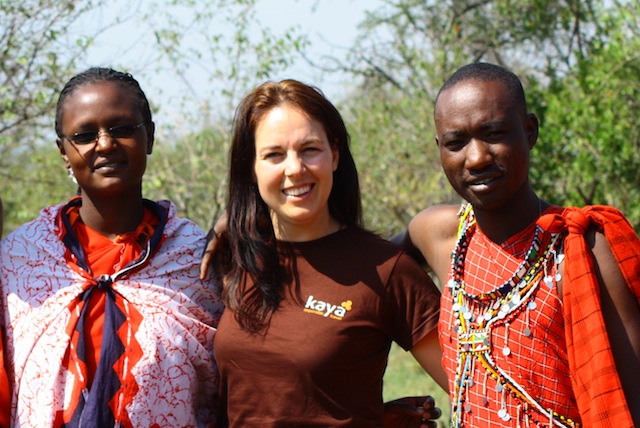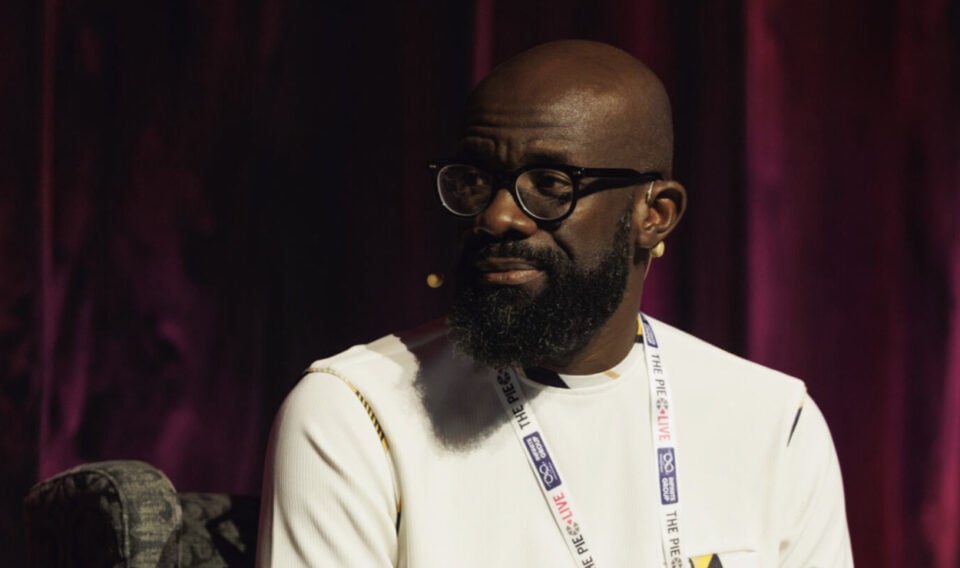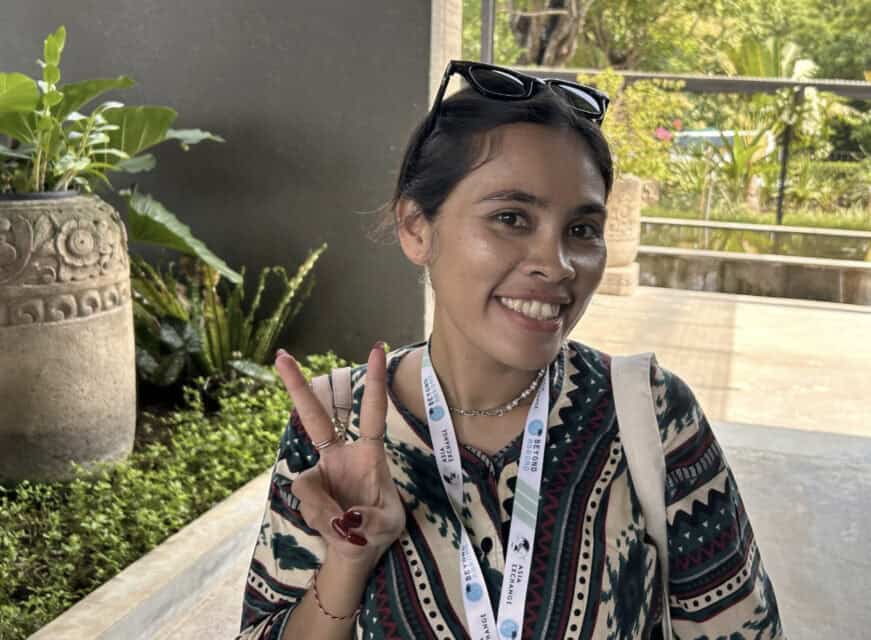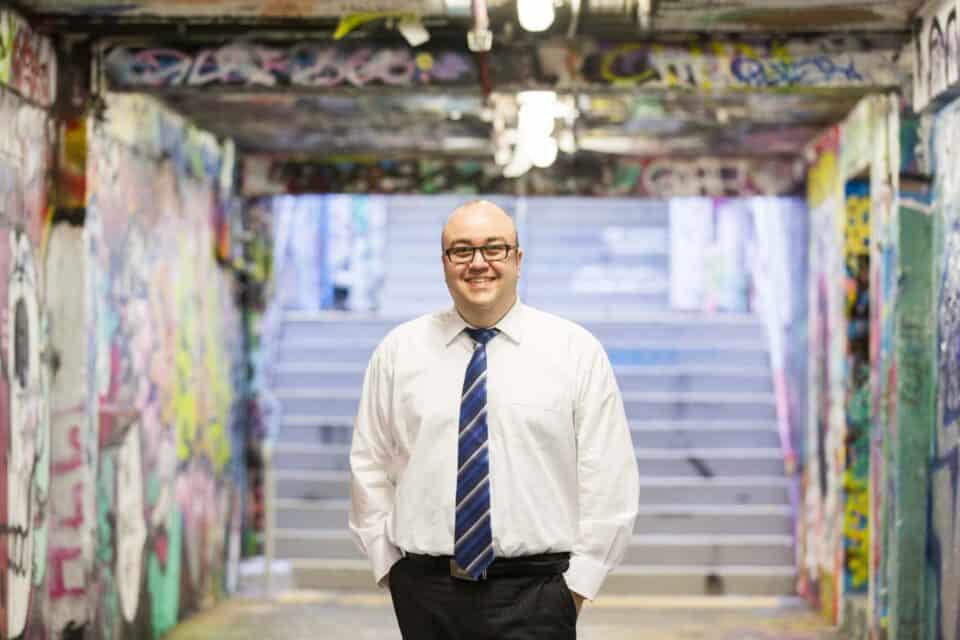After “the best four months of her life” volunteering in Thailand to help victims of the 2004 tsunami, Heilwig Jones returned to the UK to start a business inspiring others to do the same. Today the company, which focuses on sustainable volunteering and study abroad, has offices in the UK, Philippines and the US.
The PIE: How did you get Kaya off the ground?
HJ: When we first set out in 2008 Kaya was working alongside what was an already existing 10-year old organisation called ProWorld in the US. I came across them during my research and thought they had great projects and really loved what they were doing. It allowed me to set up quite quickly, combining all of the contacts I had in Asia with the ones they had in Latin America.
Then 18 months into it ProWorld was sold to Intrax and we went off on our own, which was fine because we’d been operating in those countries for time enough that I had coordinators that could quickly mobilise.
“Increasingly people are making sure that their travels are going to count, either credit-wise toward their degree or as work experience”
The PIE: You promote “responsible travel”, can you explain what that means?
HJ: We have a dual mission of promoting sustainable, social, environmental and economic development, empowering communities and cultivating educated, compassionate and global citizens through responsible travel. For me it is more than just volunteering, it also means opportunities to do service learning, language courses and cultural immersion.
The PIE: You’re on the periphery of the giant international student market. What role do you see responsible travel has in the industry?
HJ: The area of volunteering is becoming more and more important to the area of study abroad. In the last 18 months we’ve had a massive interest from the service-learning perspective, because we’re doing ‘real world’ work. Whether it’s environmental science, health, international development, or construction using sustainable building methods, it all ties in with very specific majors within the university system.
Increasingly people are making sure that their travels are going to count, either credit-wise toward their degree or as work experience. If you’re looking to work with wildlife, where do you get access to work with big game or exotic animals? It’s all well and good to get theory, but without hands-on experience from an employability perspective it’s very limited.
The PIE: And does the education sector recognise it too?
Yes, universities are embracing it for example. We have an increasing number of faculty-led programmes that we receive over the course of a year combining volunteering with service-learning to gain practical experience. We recently had a biology department come do marine conservation in Belize and we’ve had nursing groups do healthcare programmes.
“The US market is growing fastest, but we have an increasing number of volunteers from emerging markets like China and the Middle East”
The PIE: Who are your clients and where do they come from?
HJ: We’re UK based so the majority of marketing and outreach to recruit is within the UK and Europe, but by virtue of being an online company we get people from all over the world. The area that’s been growing at the greatest speed has been the US. We also have an increasing number of volunteers coming from emerging markets like China, the Middle East and South Korea.
Students in a gap year or wanting to volunteer in the field they’re studying is a mainstay for us but we have a lot of career breakers and honeymooners or retirees. Our oldest volunteer has been 79.
The PIE: When I think of volunteering I think of donating my time, so why do I have to pay for it too?
HJ: That’s probably the most common question we get. But the easy response is you’re paying to be in the country and to be looked after. The majority of the costs tend to be accommodation, food, airport pick up and training. It’s important to us not to have a negative effect, so if any of these communities or projects have two spare pennies to rub together they shouldn’t be spending it on you. They should be hiring locals or buying resources to try to solve the problem they’re focused on.
The PIE: What is your business model?[More>>]
HJ: When people pay their fee it includes the administration of it all, what we do in Kaya including ongoing maintenance, paying staff in-country, and then the running of the website to production of marketing materials.
We have six people in our UK office in Manchester, two people in our office in the Philippines and we have a couple of people in the US at the moment. In all the countries we work there are coordinators that are direct employees and then in-country employees that are paid fees to coordinate. It’s quite a large network.
The PIE: How do you find programmes to work with?
HJ: There are thousands of volunteer projects across the world. A lot of people are doing really fabulous work and some of them aren’t quite frankly. We have to make sure that all of our projects are genuine and genuinely sustainable as well. There are ash clouds and political insurgencies and all these things that happen that make countries more or less popular, and if the volunteers dry out going into an area it’s important that the rug doesn’t get pulled out from under them.
“A lot of people are doing really fabulous work and some of them aren’t quite frankly”
We have to be responsible in how we enable support through volunteers so it doesn’t become dependency. All the projects we work with are locally led initiatives. Over the course of the week we receive probably 10 enquiries to work with us or people recommend projects to us. If we find something that looks interesting we’ll go and meet with that organisation in the country and check out the project. But we don’t readily bring on lots of new stuff because there is so much risk assessment involved.
The PIE: Can you give an example?
We started talking with a few programmes in the Middle East a couple of months ago but after the Arab Spring we had to put those conversations on hold until things were more stable from a safety perspective for our volunteers.
“After the Arab Spring we had to put those conversations on hold until things were more stable from a safety perspective”
The PIE: What does Kaya mean?
HJ: It’s a powerful word that’s in line with our philosophy and what we want to achieve because of what it means in a lot of our communities. In Filipino Waray-Waray language it means “I can do it”. In Zulu and a lot of the southern African tribal languages it means “my home”, in the sense of where I belong, not necessarily a physical house. And in Buddhism, Kaya is enlightenment.
The PIE: What’s next for the firm?
HJ: We have hosted over 1,000 volunteers to date, and are now growing rapidly, while still maintaining our focus on providing individual, personalised advice to each and every volunteer to ensure that we continue matching them to the right projects. North America is going to be a real focus for us over the next 12 months. We’ll be touring some US universities, popping in on study abroad offices, and meeting faculty that are interested in customised programmes.












